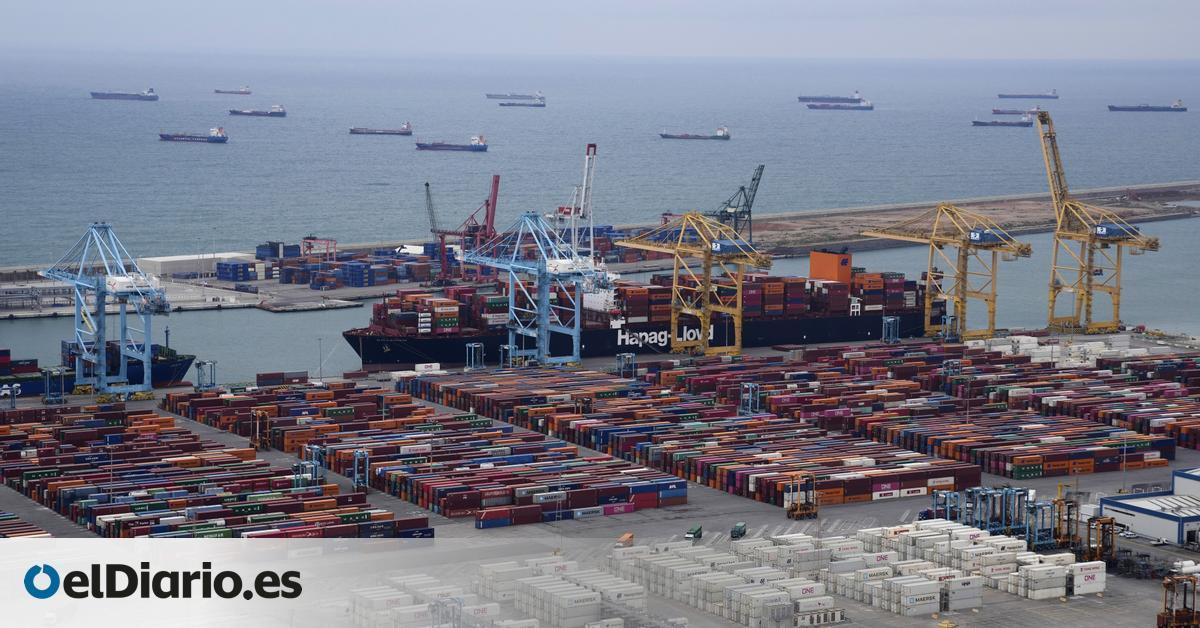
Water in tanker ships from the port of Sagunt (València) to the port of Barcelona to try to alleviate the historic drought that Catalonia is experiencing. This is the emergency solution that the Ministry of Ecological Transition will propose this Monday at the meeting between Vice President Teresa Ribera and the Minister of Climate Action, David Mascort.
The transfer of water by boat from Sagunt, which El Confidencial reported this Saturday, has been confirmed by the president of the Valencian Community, Carlos Mazón. “I am in favor of water solidarity between regions,” said Mazón after having a conversation with Ribera.
At a political level, Mazón is the first regional leader of the PP who has more clearly avoided political confrontation against Catalonia and the Government as a result of the drought. The president of the Community of Madrid, Isabel Díaz Ayuso, did the opposite this week, in statements in which she mixed the current drought that Catalonia is experiencing with the ban on bullfighting that the community approved 14 years ago.
As explained by Mazón, Minister Ribera has guaranteed him that increasing the capacity of the Sagunt desalination plant above 15% to be able to bring water to Barcelona in ships “does not have any effect on the needs of the province” of Valencia.
Historic drought in Catalonia
The worst drought in the history of Catalonia, which has caused a record drop in reservoir reserves, has forced the Generalitat to declare an emergency. Since this week, restrictions have increased for the six million people who live in the Barcelona metropolitan area.
The transfer of water in tankers was an emergency route that the Government had already been considering for weeks. The Port of Barcelona already has its facilities adapted to be able to receive ships with water after works that have cost four million euros.
Although the Government’s initial plans were to bring water from areas such as Tarragona, Murcia or Marseille, finally, for weeks there have been conversations between the upper water company of Barcelona and the state company Acuamed, which manages the desalination plant of Sagunt.
It would not be the first time that the Port of Barcelona receives ships full of drinking water for citizens’ consumption. It occurred in what was until now the worst drought in the recent history of Catalonia, that of 2008, which forced it to receive ships with water from Mallorca and Marseille. But there were only two, since just that spring it rained heavily and the reservoirs filled quickly.
Fifteen years later, on the other hand, the forecasts indicate that there will not be widespread rain in Catalonia at least until spring and that the rest of the winter will be dry, which does not make it easy to resolve the emergency declared this Thursday after the reservoirs on which they depend Barcelona and its metropolitan area will drop below 16% capacity.
The new restrictions affect more than 200 municipalities in the Barcelona metropolitan area, where around six million people live, the vast majority of the Catalan population. The measures imply a water consumption limit for each municipality of 200 liters per inhabitant per day (although it may be reduced to 180 and up to 160 in emergency phases II and III).
Agricultural irrigation has also been eliminated by 80% and can only be authorized for the survival of woody crops. For livestock uses, the reduction reaches 50%, while for industrial uses it is 25%, as well as for public and private recreational uses.
The emergency declaration also implies that the cleaning of vehicles is prohibited except in commercial establishments with water recirculation systems, as well as the cleaning of streets, sewers or facades with drinking water. Ornamental fountains or artificial lakes may not be filled either.
Source: www.eldiario.es

